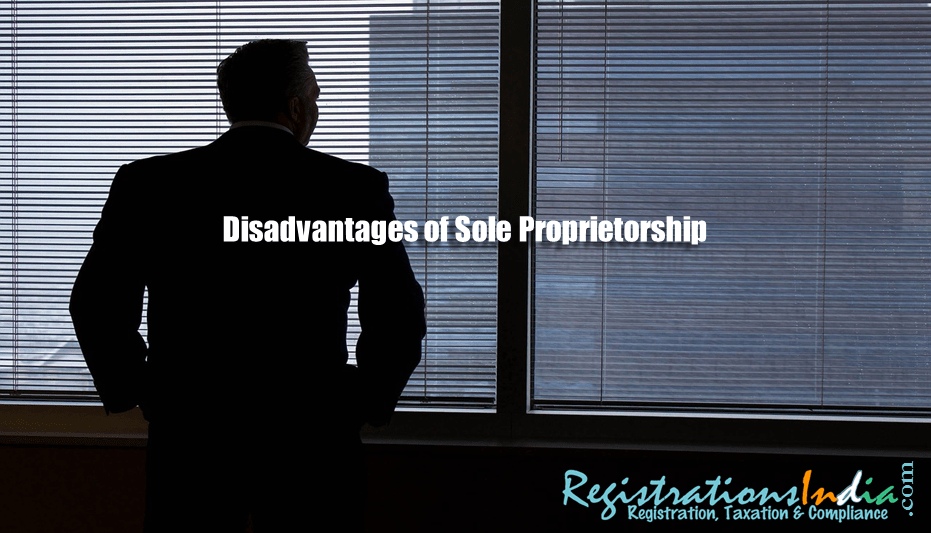Disadvantages of Sole Proprietorship
Disadvantages of Sole Proprietorship
We all know that, in order to run a business we need to form an entity which is recognized by law. The entity can either be a company, partnership firm or sole proprietorship. The choice depends upon the needs of the owner. Among all the options available sole proprietorship is the oldest and easiest way of running a business. It neither involves complex legalities nor requires an entrepreneur to follow too many provisions. Unlike a company which is governed by Companies Act, 2013, it is not governed by any particular law. People who want to run a hassle free business without getting into too many legal provisions opt for sole proprietorship form if business. But there are certain disadvantages of sole proprietorship.
Sole proprietorship as the name suggests is started and run by a single person. Every other form of business except one person company requires two or more people to start a business.
Unlimited liability
In case of sole proprietorship there is only one owner and he is unlimitedly liable for all the liabilities and losses. Unlike companies, it does not exercise the feature of limited liability wherein shareholders are liable up to the amount of capital they have invested. If the business is unable to pay back its loans, creditors, liabilities and losses the amount is recovered from the personal estate of the owner. All the assets of the owner are linked to the business and are considered as part of it.
No separate legal entity
In sole proprietorship no separate legal entity is formed. The owner and the business are one and the same thing. There is no distinction like in case of companies or limited liability partnerships. The business and its owner are considered as one. Since sole proprietorship has no separate legal entity, it cannot accept loans or debts. It can neither sue anyone in its name nor get sued upon.
A sole proprietorship firm cannot even enter into any transaction in its own name. It is the owner that enters into the transaction on behalf of the entity. Unlike companies it does not have a common seal. A sole proprietorship uses the PAN card of its owner.
Limited availability of capital
Sole proprietorship has another disadvantage and that is, raising capital for business. Since it has only one owner, availability of capital is a problem. Secondly, due to absence of separate legal entity it cannot raise capital or debts in its own name. It is the owner who gets the loan and not the business. The options are limited and as well as the sources.
No perpetual succession
In sole proprietorship there is no distinction between the owner and his business. They are treated as one. Which means that if the owner dies, the business dies too. It ceases to exist after the death or incapacity of the owner. Unlike a company it does not have perpetual succession and cannot be run after the owner dies.
Hope you have liked this article on disadvantages of Sole Proprietorship. Please leave your comments below. And please share this article around. For more information you can visit www.registrationsindia.com
Let us know your Registration, Taxation & Compliance Requirements


